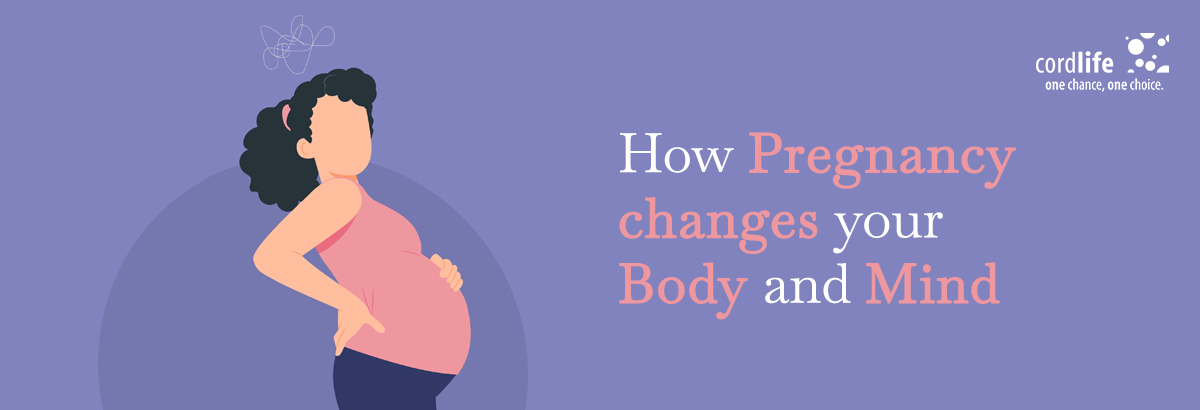Table of Contents
- Why is it Essential to Care for Your Mental Health During Pregnancy?
- 1. Notice Early Emotional Shifts:
- 2. Prioritise Stress Management
- 3. Manage Pregnancy Anxiety
- 4. Learn to Relax During Pregnancy
- 5. Build a Support Network
- 6. Care for Your Health
- 7. Keep Updated, But Don’t Overdo
- 8. Sleep Peacefully
- 9. Maintain Frequent Doctor Visits:
- 10. Prepare for Postpartum
- When Do You Need Immediate Aid?
- Bottom Line
Pregnancy brings plenty of joy and happiness in a woman’s life, but it also marks a remarkable transformation in moms-to-be, both physically and mentally. Visuals of clothes, cribs, and baby gear keep floating in the minds of expectant mothers, intensifying their anticipation about the baby’s arrival. However, too much elation or excitement can affect them mentally. Hence, keeping a checklist for mental wellness is essential throughout pregnancy.
Caring for mental health during this time can positively impact your health, your baby’s growth, and your experience as a mother. This definitive guide can be a useful mental health checklist for moms-to-be. It encompasses all potential strategies – from those to identify signs of prenatal depression to maintain sanity during pregnancy.
Why is it Essential to Care for Your Mental Health During Pregnancy?
Pregnancy can affect expectant mothers’ mental health, which can impact their physical health. Stress hormones can affect foetal growth. Poor handling of anxiety or depression can disrupt sleep, nutrition, and even postnatal care.
According to a study, a healthy mind can help a pregnancy go more smoothly. This means that mental wellness during pregnancy is just as important as regular checkups and prenatal supplements.
Here’s a simple guide that can help you stay balanced during pregnancy:
1. Notice Early Emotional Shifts:
Normal pregnancy hormones can alter your mood. If you feel sad, hopeless, or lose interest in things you used to enjoy, you may have prenatal depression symptoms..
- Record your emotional changes.
- Inform your doctor or midwife of changes.
- Do not wait for worsening symptoms to get care.
2. Prioritise Stress Management
Stress may complicate pregnancy. Proper stress management is essential to keep the mind clutter-free. Any agitation or emotional outbursts can be harmful for both moms-to-be and their babies. Stress management for pregnant women should be proactive and reactive.
- Spend a few minutes deep breathing each morning.
- Practice prenatal yoga or meditation to relax.
- Stay away from stressful news and venues.
3. Manage Pregnancy Anxiety
It is common to worry about birth, the baby’s health, and the changes of motherhood. Chronic anxiety throughout pregnancy can be overwhelming. So it’s advisable to:
- Find out what bothers you and tell someone you trust.
- Plan “how can I” actions instead of pondering “what if”.
- If your anxiety persists, get professional treatment.
4. Learn to Relax During Pregnancy
Both mother and baby benefit from relaxation. Here are a few things you can do:
- Guided visualisation of peaceful regions.
- Before bed, listen to relaxing music.
- Rest is important throughout pregnancy, so take pauses.
5. Build a Support Network
Talking to someone throughout pregnancy can improve mental health. Positive communication increases your dopamine levels, making you feel relaxed and calm at all times.
- Stay in touch with pleasant family and friends.
- Join a pregnancy group online or in person.
- Tell your partner how they can help.
6. Care for Your Health
Self-care is vital, not selfish. Daily self-care advice for pregnancy includes:
- Staying hydrated and eating well.
- Walking slowly to improve mood and circulation.
- Taking warm baths
- Gentle stretching
7. Keep Updated, But Don’t Overdo
Knowing things can reduce anxiety, but overstudying might worsen it.
- Select credible pregnancy resources.
- Spend less time on negative forums.
- Read and do other enjoyable stuff.
8. Sleep Peacefully
Hormonal changes and pain can impair sleep, which is detrimental to mental health.
- Support your stomach and back with pillows.
- Turn off electronics and relax an hour before bed.
- Consult your doctor about safe insomnia treatments if it persists.
9. Maintain Frequent Doctor Visits:
Your body and mind are connected. To maintain your physical and mental agility, it is recommended that you consult your doctor regularly. Their advice and evaluation matter throughout the journey:
- Tell your doctor about your emotional issues.
- Ask about safe therapy if symptoms appear.
- Even if you feel fine, don’t skip your prenatal appointments.
10. Prepare for Postpartum
- Plan beforehand to reduce stress.
- Plan for help in the initial weeks following birth.
- Learn about mental health after childbirth to spot signs.
- Ensure transparent communication within your support network
When Do You Need Immediate Aid?
Emotional ups and downs are normal, but if you see any of these, seek help:
- Constantly gloomy or hopeless.
- Highly agitated.
- Constant worry or panic attacks.
- Any desire to hurt yourself or your child.
Call your doctor, midwife, or mental health professional immediately. There is aid for you.
Bottom Line
Pregnancy is a life-changing experience, but it can also affect your mental health. Pregnancy mental health checklists can help you relax, reduce stress, and enjoy yourself. If you are struggling with mood swings, trying to keep calm, or looking for pregnancy mental health tips, remember that self-care is like caring for your child. However, you can download our pregnancy guide here.
Maintaining mental and emotional health throughout pregnancy is just as important as physical health. Take care of yourself, ask for help, and treat yourself like your child.

